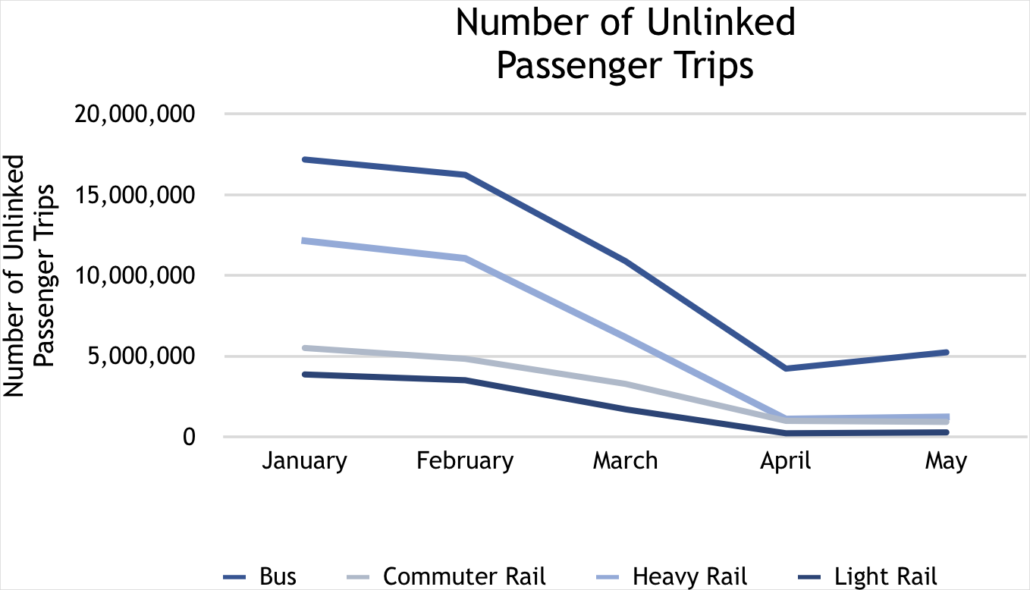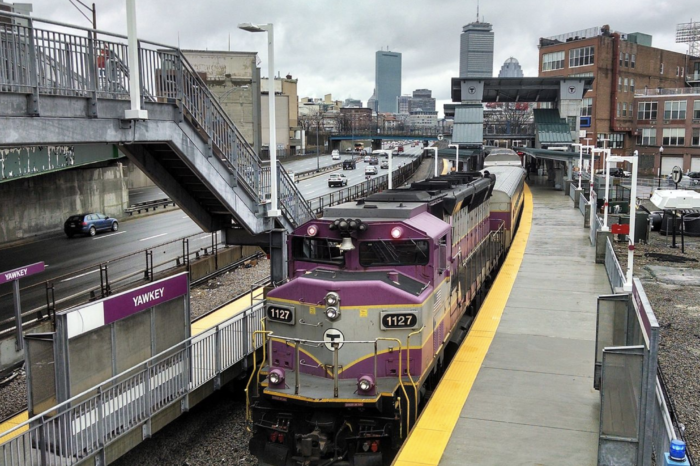A Time to Build
The MBTA is taking advantage of anemic low ridership from the pandemic to improve its infrastructure, but the minimal ridership also creates serious operating budget issues.
Pioneer Institute’s website, MBTAAnalysis, confirms that ridership cratered in recent months, which means a massive drop in fare revenue. In every category, May ridership numbers are a fraction of what they were in February.

While low ridership gives the MBTA a rare opportunity to renovate without interfering with travelers, analysis from the Massachusetts Tax Payer Foundation suggests that the T could have an “existential” operating budget deficit of more than $400 million by fiscal year 2022.
The MBTA faced dire financial strain in 2015 and has spent years recovering by establishing a Fiscal and Management Control Board (FMCB) that worked to balance spending and increase revenue. In the shadow of this new budget crisis, the FMCB has been renewed another year.
Yet, the MBTA is advancing accelerated options to modernize the T this summer. These include shutting down a portion of transit, using shuttles as temporary replacements, and working in the project areas non-stop for a multi-week period.
28-day shut downs on the Green Line C and E branches this summer are estimated to account for a year’s worth of weekend and night closures each. The MBTA website says that in total, all fast-track options together will complete eight years of work in just one.
The MBTA may escape 2020 with improved services and functionality, but getting through the year without returning back to a 2015-like budget disaster will prove to be a much harder task than anticipated.
As Pioneer has previously recommended, the MBTA should survey its riders to get a better understanding of when they will again be using the T. Such information is critical for adequate budget planning.



